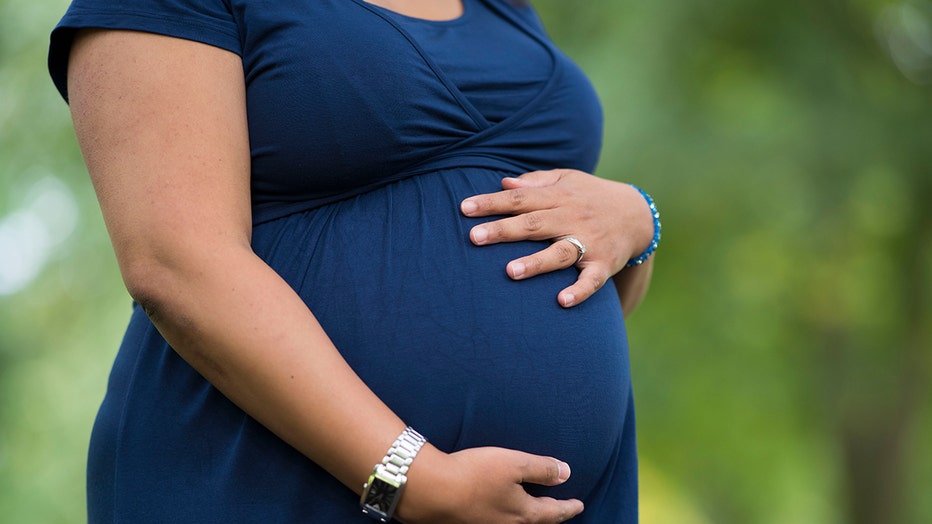CDC director says agency recommends COVID-19 vaccines for pregnant people after ‘no safety concerns’ observed
LOS ANGELES - The director of the U.S. Centers for Disease Control and Prevention said Friday the agency recommends pregnant women receive a COVID-19 vaccination after preliminary data showed no safety concerns.
"No safety concerns were observed for people vaccinated in the third trimester or safety concerns for their babies. As such, CDC recommends that pregnant people receive the COVID-19 vaccine," Dr. Rochelle Walensky, the CDC director, said in a press briefing Friday.
The recommendation comes after preliminary data showed that two COVID-19 vaccines appear to be safe for pregnant women.
The CDC study, published Wednesday in the New England Journal of Medicine, found the Pfizer and Moderna vaccines "do not indicate any obvious safety signals with respect to pregnancy." None of the women received the Johnson & Johnson vaccine, which became available after the study, and was temporarily halted from being administered after reports of blood clots in some women.
RELATED: CDC: COVID vaccines appear safe for pregnant women
Researchers tracked the health of pregnant women through the CDC’s V-safe voluntary smartphone system after they received the Pfizer or Moderna shots between December 2020 and late February.
"We were able to follow 35,000 pregnant people who were vaccinated," Walensky said. "Pregnant people experienced the same side effects as others following vaccination."
The data showed those who were vaccinated did not appear to have any greater risk of pregnancy complications.

A pregnant woman holds her belly on September 27, 2016 in Cardiff, United Kingdom. (Photo by Matthew Horwood/Getty Images)
"We know this is a deeply personal decision and I encourage people to talk to their doctors or primary care providers to determine what is best for them and for their baby," Walenksy continued.
Several studies on the effects of COVID-19 illness on those who are pregnant indicate that the virus can take a more severe toll on both mothers and their newborns.
One large study in November involving hundreds of woman around the world suggested that those who get COVID-19 during pregnancy have higher risks for death, the need for intensive care, preterm birth and other complications. The research was published in the Journal of the American Medical Association Pediatrics.
The CDC has said in the past that while the overall risk is low, pregnant woman are more likely to suffer from severe COVID-19 illness compared to those who aren’t pregnant. Pregnant people with the virus might also be at increased risk for other poor outcomes, such as preterm birth, the agency’s website added.
RELATED: Marijuana use during pregnancy linked to greater risk of autism in children, study says
The findings showed that those diagnosed with the virus were at higher risk for preeclampsia, severe infections, admission to hospital intensive care units and death. Their babies were also at greater risk of neonatal complications, mainly due to preterm birth, the study said.
Of the mothers who tested positive for COVID-19, 11.5% of their babies also tested positive, the study found.
While other studies have looked at COVID-19's effects on pregnant women, this was among the first study to have a concurrent control group with which to compare outcomes, said Dr. Michael Gravett with UW Medicine, one of the study's lead authors."The No. 1 takeaway from the research is that pregnant women are no more likely to get COVID-19, but if they get it, they are more likely to become very ill and more likely to require ICU care, ventilation, or experience preterm birth and preeclampsia," Gravett said, who is a professor of obstetrics and gynecology.
The United States passed a milestone Thursday of more 200 million shots administered to Americans in less than 100 days. The Biden administration continues its relentless effort to get Americans vaccinated against COVID-19.
Walenksy noted a decrease in COVID-19 cases Friday amid the full-scale vaccination effort.
"Our average seven-day is going down. This is a 10 percent drop in average cases from the prior week and a hopeful trend," Walensky said.
More than 87 million Americans are fully vaccinated in the country, and more than half of the population (51.5%) 18 years of age or older are vaccinated.

